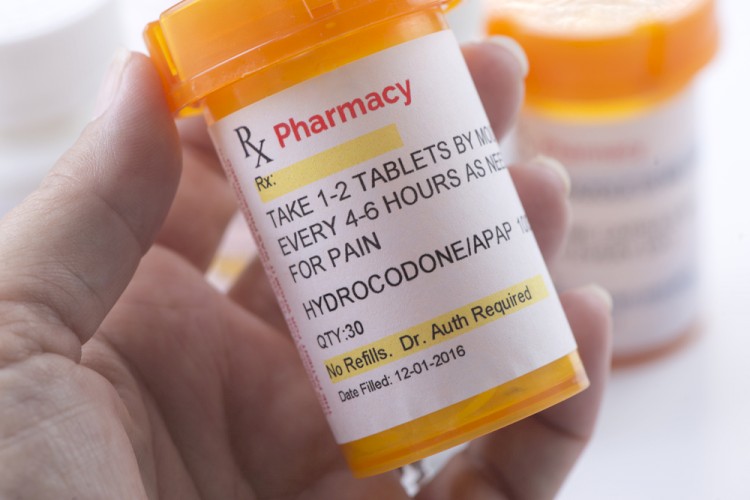Dee asked
My husband is currently on Suboxone and is having surgery in the mouth today. They prescribed hydrocodone for pain. What should he do? Stop Suboxone to take hydrocodone? Take both?
At a glance
- If you already take Suboxone, hydrocodone will not work well since buprenorphine (one of the drugs contained in Suboxone) will already be occupying the site of action, the mu receptor. This will leave hydrocodone with nothing to bind to.
Answer

We answered a question similar to this recently, which can be found here:
While you can read the entire explanation of what happens when you take hydrocodone if you are already on Suboxone (buprenorphine/naloxone), the overall point is that the hydrocodone will not work very well for relieving pain.
This is because the buprenorphine and hydrocodone produce analgesia (i.e. pain-relief) by interacting with the same receptor, known as the mu receptor.
If you already have buprenorphine on board, bound to the mu receptor, hydrocodone won't have anything to bind to, and therefore, won't be effective.
Suboxone Mechanism
Suboxone contains two active ingredients, buprenorphine, and naloxone, but we'll focus on buprenorphine in this situation.
Naloxone is an important ingredient, but it only comes into play if injected (since it precipitates withdrawal). It is not well absorbed when Suboxone is used as directed (placed under the tongue).
Buprenorphine is classified as a 'mixed agonist-antagonist', which sounds a bit more confusing than it actually is. It simply means that it acts as an agonist at certain receptors (e.g. mu receptors) but as an antagonist at others (e.g. kappa).
It isn't necessary to get into the full pharmacology of how drugs interact with these opioid receptors, but pertinent to this question is the fact that buprenorphine binds very strongly to mu receptors, and for a long time. In fact, binding can last as long as 24 hours.
This binding to mu receptors produces a variety of effects, but most notably, in this case, it is mainly responsible for pain relief.
It is important to note that while buprenorphine does produce pain relief, it typically isn't as strong as with other opioids, like hydrocodone.
Hydrocodone Mechanism
Unlike buprenorphine, which has a somewhat complex mechanism of action, the main effects of hydrocodone are due to its agonism of mu receptors.
Unfortunately, as mentioned in the 'Overview' section, if you are already taking Suboxone (which contains buprenorphine), these mu receptors will already be occupied. Buprenorphine binds very strongly to mu receptors and for a long time, leaving hydrocodone with none (or very few) to bind to.
Taking Together
Since hydrocodone won't have free mu receptors to bind to if you are already on Suboxone, it won't have its intended effects (i.e. pain relief).
In your husband's situation, the prescribing dentist may not be aware that he is taking Suboxone or perhaps isn't aware of their interaction...this could leave your husband not having effective pain relief after his dental surgery.
What To Do?
There are several studies and articles that discuss what to potentially do in a situation where a patient needs more pain relief than is provided by Suboxone.
Strategies include using very potent drugs for a short period of time (e.g. fentanyl) or temporarily discontinuing Suboxone.
In any case, you should speak with the dentist as well as the pain management doctor to come up with a safe solution for your husband's situation.




